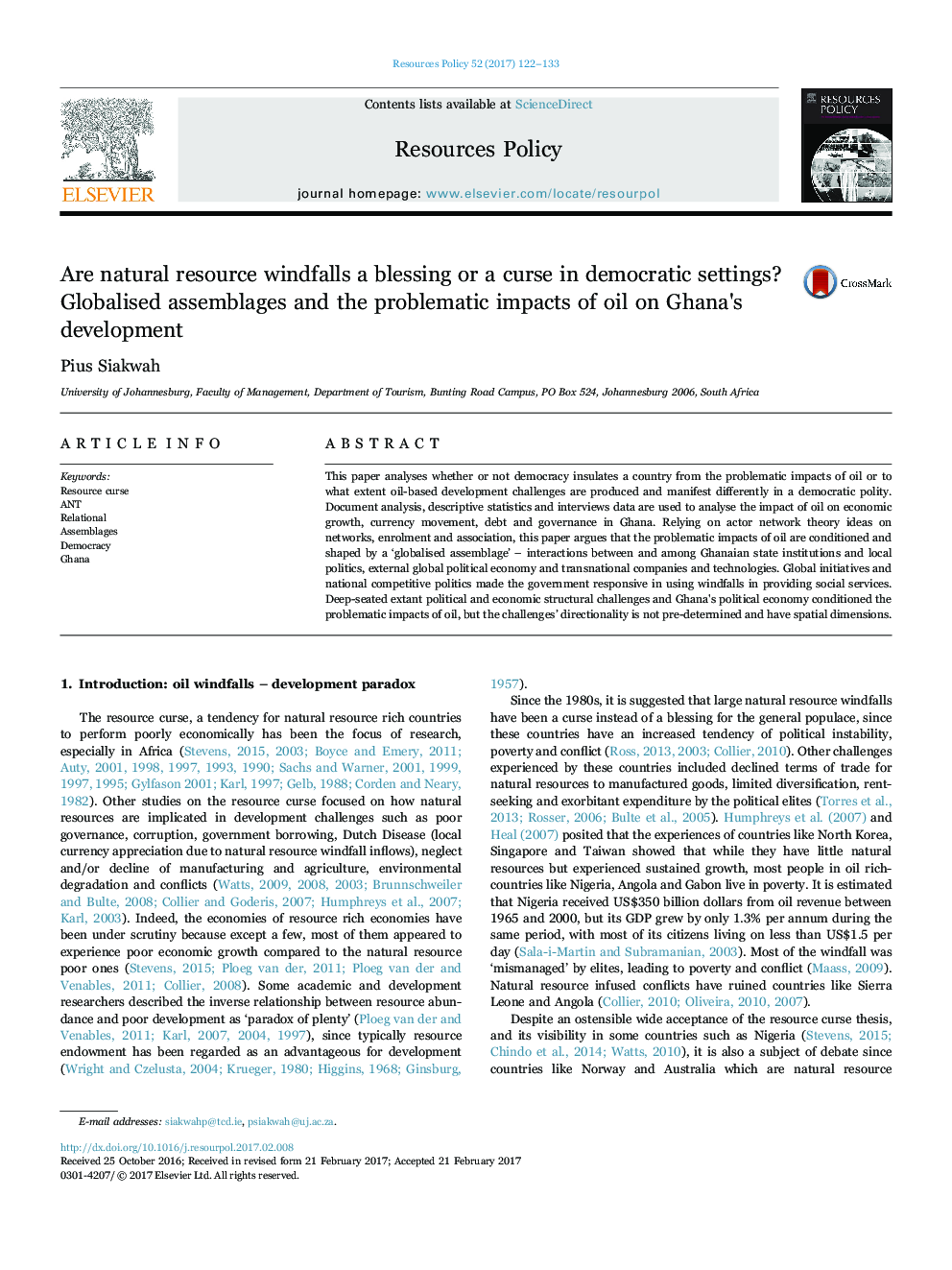| Article ID | Journal | Published Year | Pages | File Type |
|---|---|---|---|---|
| 5104198 | Resources Policy | 2017 | 12 Pages |
Abstract
This paper analyses whether or not democracy insulates a country from the problematic impacts of oil or to what extent oil-based development challenges are produced and manifest differently in a democratic polity. Document analysis, descriptive statistics and interviews data are used to analyse the impact of oil on economic growth, currency movement, debt and governance in Ghana. Relying on actor network theory ideas on networks, enrolment and association, this paper argues that the problematic impacts of oil are conditioned and shaped by a 'globalised assemblage' - interactions between and among Ghanaian state institutions and local politics, external global political economy and transnational companies and technologies. Global initiatives and national competitive politics made the government responsive in using windfalls in providing social services. Deep-seated extant political and economic structural challenges and Ghana's political economy conditioned the problematic impacts of oil, but the challenges' directionality is not pre-determined and have spatial dimensions.
Related Topics
Physical Sciences and Engineering
Earth and Planetary Sciences
Economic Geology
Authors
Pius Siakwah,
